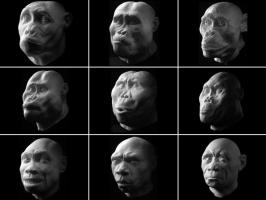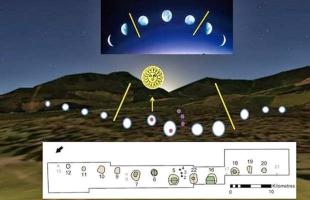Copy Link
Add to Bookmark
Report
AIList Digest Volume 8 Issue 136

AIList Digest Monday, 5 Dec 1988 Volume 8 : Issue 136
Queries (and a few responses):
Articles on "Expert Applications in Network Management" (1 response)
Chaos Theory and AI (1 response)
Learned Behavior vs. Hard-Wired Behavior (1 response)
Chemistry Expert Systems
Robotic Language
Life Cycle Support
Expert System Advice
Robert Blum's Address
HCI programs
Translating PROLOG in other languages
Expert systems concerning Law
Similarity Metrics: Reminding, Retrieval, CBR, etc.
Natural Language Recommendations wanted
----------------------------------------------------------------------
Date: 24 Nov 88 00:07:37 GMT
From: ukma!mailrus!ncar!dinl!ericson@ohio-state.arpa (E C Ericson)
Subject: Articles on "Expert Applications in Network Management"
Help I'm in need of articles or references to articles dealing with the
use of expert systems for network management. Specifically, I'm need of
articles describing:
1) General expert applications to net management
2) Expert applications for configuration management
3) Expert applications for fault management
4) Expert applications for performance management
5) Expert applications for security management
6) Expert applications for accounting management
If replying by U.S.nail please address information to my PO box
POBox 4797
Englewood,CO 80155
Thanks in advance!
--
Eric Ericson ...!ncar!dinl!ericson h(303)681-3416 w(303)977-0325
------------------------------
Date: 28 Nov 88 13:36:28 GMT
From: mcvax!unido!iraun1!iraul1!gb@uunet.uu.net (Guilherme
Bittencourt)
Subject: Re: Articles on "Expert Applications in Network Management"
>Help I'm in need of articles or references to articles dealing with the
>use of expert systems for network management. Specifically, I'm need of
>articles describing:
>
> 1) General expert applications to net management
> 2) Expert applications for configuration management
> 3) Expert applications for fault management
> 4) Expert applications for performance management
> 5) Expert applications for security management
> 6) Expert applications for accounting management
CANTONE, R.R., LANDER, W. B., MARRONE, M. P., GAYNOR, M. W., IN-ATE/2 :
Interpretating High-Level Fault Modes. Proc. of the First Conference
on Artificial Intelligence Applications, pp. 470-475, IEEE, December
1984.
JENNINGS, A., NICHOLSON, P., Artificial Intelligence in Communication
Networks. Talk at the "Computing Systems and Information Technology"
Conference, Brisbane, June 1987. Telecom Australia Research Report,
1987.
MERRY, M., APEX-3 : An Expert System Shell for Fault Diagnosis. The GEC
Journal of WILLIAMS, T.L., ORGREN, P.J., SMITH, C L., Diagnosis of
Multiple Faults in a Nationwide Communications Network. Proc. of IJCAI
8, pp. 179-181, 1983.
I hope this helps you. These references are extracted from our
internal report :
CALMET, J. and BITTENCOURT, G.,_Bibliography on Expert Systems and their
Methodology_. Internal Bericht Nr. 4/88, Universitat Karlsruhe,
Fakultat fur Informatik, Marz 1988.
If you want a copy of our bibliography please send me a message
asking for it.
Best regards, Guilherme
Guilherme BITTENCOURT +-----+ calmet@ira.uka.de
Universitat Karlsruhe - EISS | <0> | (Subject : mail to gb)
Postfach 6980 +-----+
D-7500 Karlsruhe 1 - BRD (49) 721 6084043
Guilherme BITTENCOURT e-mail : calmet@ira.uka.de (Subject : Message to GB)
Universitat Karslruhe - EISS
Postfach 6980
D-7500 Karlsruhe 1 - BRD tel.: (49) 721 6084043
------------------------------
Date: 26 Nov 88 20:21:25 GMT
From: paul.rutgers.edu!butterfly.rutgers.edu!koeneman@rutgers.edu
(Juergen Koenemann)
Subject: Chaos Theory and AI
In Gleick's account of the emerging of the Chaos Theory (Chaos) there is
a general remark that AI researchers try to use fractals etc. to
model concept boundaries. I would appreciate pointers to work in AI
which tries to apply Chaos Theory. Thanks. Jurgen Koenemann
koeneman@paul.rutgers.edu
--
Juergen Koenemann
------
koeneman@paul.rutgers.edu
koeneman@topaz.rutgers.edu
------------------------------
Date: 28 Nov 88 19:45:48 GMT
From: bbn.com!aboulang@bbn.com (Albert Boulanger)
Subject: Re: Chaos Theory and AI
Here is one (connectionist) reference off the top of my head:
"How Brains Make Chaos in Order to Make Sense of the World"
Christine Skarda & Walter Freeman
Behavioral and Brain Sciences (1987)10, 161-195
One set of tools that the physics types have brought with them in the
new wave of neural-network research are the tools of dynamical systems.
Dynamically yours,
Albert Boulanger
BBN Systems & Technologies Corp.
aboulanger@bbn.com
------------------------------
Date: 27 Nov 88 05:19:43 GMT
From: sun.soe.clarkson.edu!spam@tcgould.tn.cornell.edu (Roger
Gonzalez,,,)
Subject: Re: Learned Behavior vs. Hard-Wired Behavior
Could people please email me a list of neural "mechanisms" that
are probably hard-wired into humans (or other critters). I'm
looking for things like pain, sexual/maternal(?) attraction,
curiosity, urge to survive, etc. ... things that are not learned.
I'm working in neural networks, and I'm basically looking at (for example)
the future problem of a very unmotivated simu-beast. I decided that
I should probably give it curiosity for starters or something similar
to make it want to explore. Any help would be appreciated.
---------------------
Roger Gonzalez
spam@clutx.clarkson.edu
------------------------------
Date: 28 Nov 88 20:16:38 GMT
From: hoptoad!tim@ucbvax.berkeley.edu (Tim Maroney)
Subject: Re: Learned Behavior vs. Hard-Wired Behavior
In article <1753@sun.soe.clarkson.edu> spam@clutx.clarkson.edu (Roger
Gonzalez) wrote:
>Could people please email me a list of neural "mechanisms" that
>are probably hard-wired into humans (or other critters). I'm
>looking for things like pain, sexual/maternal(?) attraction,
>curiosity, urge to survive, etc. ... things that are not learned.
>I'm working in neural networks, and I'm basically looking at (for example)
>the future problem of a very unmotivated simu-beast. I decided that
>I should probably give it curiosity for starters or something similar
>to make it want to explore. Any help would be appreciated.
The best starting point in my opinion would be Skinnerian behaviorism.
The basic mechanisms of operant conditioning have been found in all
animals capable of emitting operants, and so are the closest thing we
know to a "hard-wired" basis of behavior. Of course, it takes at least
one semester of graduate-level study to really understand operant
conditioning, so don't expect to be able to jump right in and start
coding. Also remember that any simulation which does *not* obey the
rules of operant conditioning will not be an accurate simulation of an
animal.
On a related point that's been brought up in this discussion, I think
some people are getting confused on some developmental points. The
fact that we can interrupt the development of a behavior does not mean
the behavior is purely learned. The classic example involves the
kitten in a harness experiments; if kittens aren't allowed to wander,
but are kept in a harness through certain phases of development, then
they won't extend their paws when placed near a surface. That doesn't
mean that the paw extension is learned, only that its development
depends on certain environmental factors present in the lives of all
healthy kittens in the wild. The fact that it is present in all
healthy cats suggests that it is innate.
Nature vs. nurture is one of the oldest and least resolvable debates in
psychology. Until we can actually decode genomes, which may well be
two centuries from now, we won't have any real way to tell whether the
average behavior is learned or innate. Mother-bonding is innate, and
operant conditioning is innate. That's about all we can say now.
--
Tim Maroney, Consultant, Eclectic Software, sun!hoptoad!tim
"Those who restrain desire, so so because theirs is weak enough to be
restrained; and the restrainer or reason usurps its place & governs the
unwilling." - Blake, "The Marriage of Heaven and Hell"
------------------------------
Date: Mon, 28 Nov 88 11:29 EDT
From: "Dr. Douglas A. Smith" <FAX0236%UOFT02.BITNET@MITVMA.MIT.EDU>
Subject: chemistry expert systems
I am a synthetic and computational organic chemist. My research group is
working on developing several programs for use in molecular modeling. One
project just getting underway involves the development of an expert system
which will assign the three-dimensional absolute configuration of a chiral
center using the Cahn-Prelog-Ingold rules.
1. Are there any other chemists out there who read this list?
I would like to get in touch with you.
2. Does anyone know of any chemistry expert systems that are around?
Any language, any application.
3. We are using Quintus Prolog. Any comments? Can anyone suggest
the best way to interface data such as cartesian coordinates and
connectivity information which is generated by a Fortran program
to Prolog? What about ways to interface Fortran and Prolog
code in general?
4. We are also planning an expert system which will assign symmetry
elements and point groups to molecules. Comments are welcome.
I would appreciate any comments, advice, references, etc. Thanks in advance.
Dr. Douglas A. Smith
Department of Chemistry
University of Toledo
Toledo, OH 43606
Bitnet: FAX0236@UOFT02
Phone: (419)537-2116
------------------------------
Date: Mon, 28 Nov 88 12:09:29
From: "Bryce H. Doster" <36617803%WSUVM1.BITNET@MITVMA.MIT.EDU>
Subject: Robotic Language
I am working on a project concerning the Design of a Language
for use in Robotics, written in C. That is, the Compilier Source
code will be written in C.
I am aware of Marc D. Donner's OWL language.
Any contribution that may aid in this endevor will be greatly
appreciated.
Bryce H. Doster
------------------------------
Date: 29 Nov 88 21:27:36 GMT
From: sparker@cod.nosc.mil (Sally A. Parker)
Subject: Life Cycle Support
I am working on a project dealing with the life cycle support
of Expert Systems. I would appreciate any help any of you can
give me. The primary questions are:
1. How does T&E differ for expert systems compared with conventional
software systems?
2. Is V&V different for expert systems than it is for conventional
systems? How?
3. Is maintaining expert systems different than for conventional
systems? How?
4. What in particular needs to be considered when supporting
Expert Systems?
I know its a big subject, but any help I can get would be great.
Real world (real system?) examples would be an especially big help.
Thanks.
Sally Parker (sparker@nosc.mil or
NOSC, Code 411 sparker@nosc-tecr.arpa)
San Diego, CA 92152
------------------------------
Date: 30 Nov 88 01:06:35 GMT
From: chico@tiger.oxy.edu (Gary Patrick Simonian)
Subject: Expert System Advise
I am an Occidental student and a senior in the Cognitive Science major.
As a requirement we are to present a paper or project for evaluation. I
have decided to program an expert system which performs the duties of a
college counselor. The user will enter three interests, and the
computer will advise the user as to which major and which courses would
be best to pursue. The computer I will use is an 640K IBM XT, and the
language will be TML Pascal (which is similar to turbo, I think). I
must finish the project around the second week March, so I would
appreciate any suggestions on how to model my program as soon as
possbile. Thank you.
My email address is: oxy!chico@csvax.caltech.edu
------------------------------
Date: Wed 30 Nov 88 12:14:06
From: Shamsul Islam Chowdhury <sic@IDA.LiU.SE>
Subject: Robert Blum's Address
Is there anyone who can help me with Dr. Blums's address/e-mail?
Thanks in advance.
/Shamsul Chowdhury
------------------------------
Date: 30 Nov 88 19:07:07 GMT
From: rl@sei.cmu.edu (Robin Lampert)
Subject: HCI programs
I'm trying to find out more about good graduate programs in
Human-Computer Interaction (HCI) and would appreciate the
help of net readers.
Some of my interests are individualized or tailored work
environments, computer supported group work, the distribution of
tasks and decision making between people and machines and good
cognitive matching between person, task and environment.
The following information, if you could sent it to me, would be useful:
School:
Address:
Department(s):
Program:
Focus of the program:
Current research projects there:
Faculty and researchers:
Names and phone numbers of people in the program (faculty,
research staff, students) who might be willing to talk to a
prospective graduate student:
Is there much co-operation between this program/department
and others within the school?
Is there much co-operation between this program/department
and programs at other academic and research institutions?
Is there much co-operation between this program/department
and developers (companies, government) of systems?
Other things I should know?
I plan to summarize the information I get for the net*, so if
you do NOT want me to include the information you send, or to
only include it anonymously, let me know.
* However, I'm only planning to post it to comp.cog-eng, this
seems like too many cross-postings for a second message, but
I'll e-mail it if I get requests with a useable return address,
or add some cross-posting if enough people ask.
Thank you.
-Robin Lampert
(rl@sei.cmu.edu)
Software Engineering Institute, Carnegie Mellon University,
Pittsburgh, PA 15213-3890 (412) 268-6818
--
-Robin Lampert
(rl@sei.cmu.edu)
Software Engineering Institute, Carnegie Mellon University,
Pittsburgh, PA 15213-3890 (412) 268-6818
------------------------------
Date: Wed, 30 Nov 88 18:03:52
From: UZR515%DBNRHRZ1.BITNET@CUNYVM.CUNY.EDU
Subject: Translating PROLOG in other languages
I am looking for information about converting PROLOG to other languages
(C, PASCAL, ASSEMBLER, etc.) or about PROLOG interpreters written
in such languages.
Thanks in advance, Hooshang Mehrjerdian
BITNET: UZR515@DBNRHRZ1
------------------------------
Date: Thu, 1 Dec 88 07:31 CDT
From: <MXFLIPPO@UAMS>
Subject: Expert systems concerning Law
Hello!
I am trying to locate any information concerning expert systems
designed to manage and evaluate legal cases, i.e. input information
about the case and let the program decide if you have a good
case or if you should settle.
Any information anyone could give me concerning this or any
programs dealing with legal departments of corporations would
be greatly appreciated.
Thanks in advance.
Margo Flippo
MXFLIPPO@UAMS
------------------------------
Date: 1 Dec 88 20:29:57 GMT
From: king@rd1632.Dayton.NCR.COM (James King)
Reply-to: king@rd1632.Dayton.NCR.COM (James King)
Subject: Similarity Metrics: Reminding, Retrieval, CBR, etc.
SIMILARITY ... What does it mean?
for ANALOGY What are the measures?
for REMINDING Are there generalities or is it domain-specific?
for EXEMPLARS ... Etc. Etc.
I am performing independent research in the area of Case-Based
Reasoning, CBR, and I am working on various metrics for similarity.
In general, what ideas do you (the net-world) have about:
- What about a new situation reminds you of a prior experience?
- OR
- How does one situation remind you of another?
This is obviously a (too) wide open question and requires some clarity,
but I would rather not focus the discussion to a set of examples yet.
That is, unless it is more productive to do so. A little more focus
might be how does one discriminate and weight features of a new
situation (case) in relationship to a large case-base of experiences
that may or may not have a bearing on the new situation. Did that
provide more focus or fuzziness!?
I send this notice out as a preliminary "attention-getter" to
provide myself with some input to help form a more formal survey. Once
written I hope to send it to a specific set of researchers (consisting
mostly of people in the CBR, information retrieval (IR), doc. mngt. areas)
and to anyone in netland that requests so.
My goals are to:
- Produce some consensus of opinion on a view, or approach(es),
to similarity and the possibility of codifying it to aid in reminding
and retrieval of prior experiences.
- ALSO: I wish to propose to Dr. Katz at MITRE that a workshop be held
at IJCAI-89 which would address/discuss this area of concern. If
anyone is interested in adding support or input please let me
know. (We held a lively workshop on CBR at AAAI-88, and
I believe a focused workshop in a specific area that would
benefit CBR researchers as well as IR, AI, etc. is important.)
If anyone is interested in responding to any of this:
- I will watch the "nets" for replies
- Email to: j.a.king@dayton.ncr.com
- Call: (513)-445-1090 before 4:30 (EST) (317)-478-5910 after 6:00
- Mail: NCR Corp. 1700 S. Patterson WHQ-5E Dayton, OH 45479
After listening, talking to people, etc. for the next couple weeks I
will write up the survey (anyone can help form the survey) over Christmas
and send it out the first week in January. By February-March (15th?)
I will hopefully be able to publish preliminary results (to the net,
respondents, etc.).
I am fairly familiar with the discussions of similarity by Kolodner,
Schank, Rissland, Porter and others in the CBR field - also from the
IR field, Fox, Croft, Salton, etc. I have built one CBR system
and two applications where the similarity metric was determined from the
experts.
BUT ... I am open to anyone's suggestions on reference works for
understanding similarity metrics, methodologies, etc.
Thank you for your time.
Jim King
------------------------------
Date: 1 Dec 88 21:19:03 GMT
From: pyramid!prls!philabs!ttidca!paulb@decwrl.dec.com (Paul
Blumstein)
Subject: Natural Language Recommendations wanted
I am looking for a list of Natural Language commercial products available.
Please send me as much info as you can. I.e., any (or all) of product
name, vendor name, address, tel #.
Also, please send me any recommendations on Natural Language literature.
That includes magazine articles, books, etc.
I prefer e-mail (see below) and will summarize to the net.
Thanks, in advance.
=============================================================================
Paul Blumstein | We are confronted with insurmountable
Citicorp/TTI | opportunities. -- Pogo
Santa Monica, CA +-------------------------------------------------
{philabs,csun,psivax}!ttidca!paulb or paulb@ttidca.TTI.COM
If caught, the Secretary of Citicorp will disavow all knowledge of my actions.
------------------------------
End of AIList Digest
********************

























